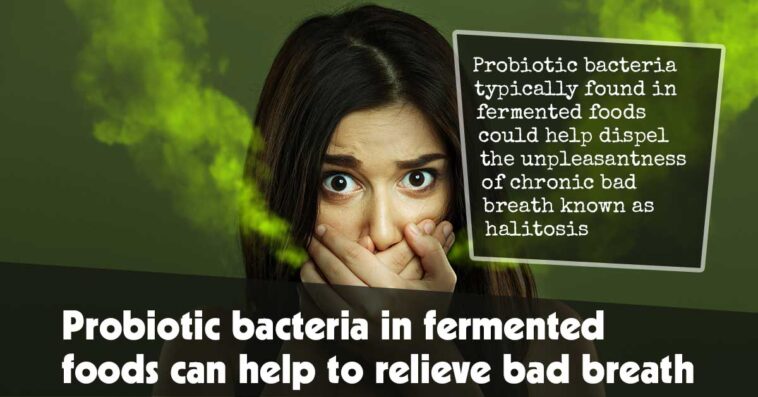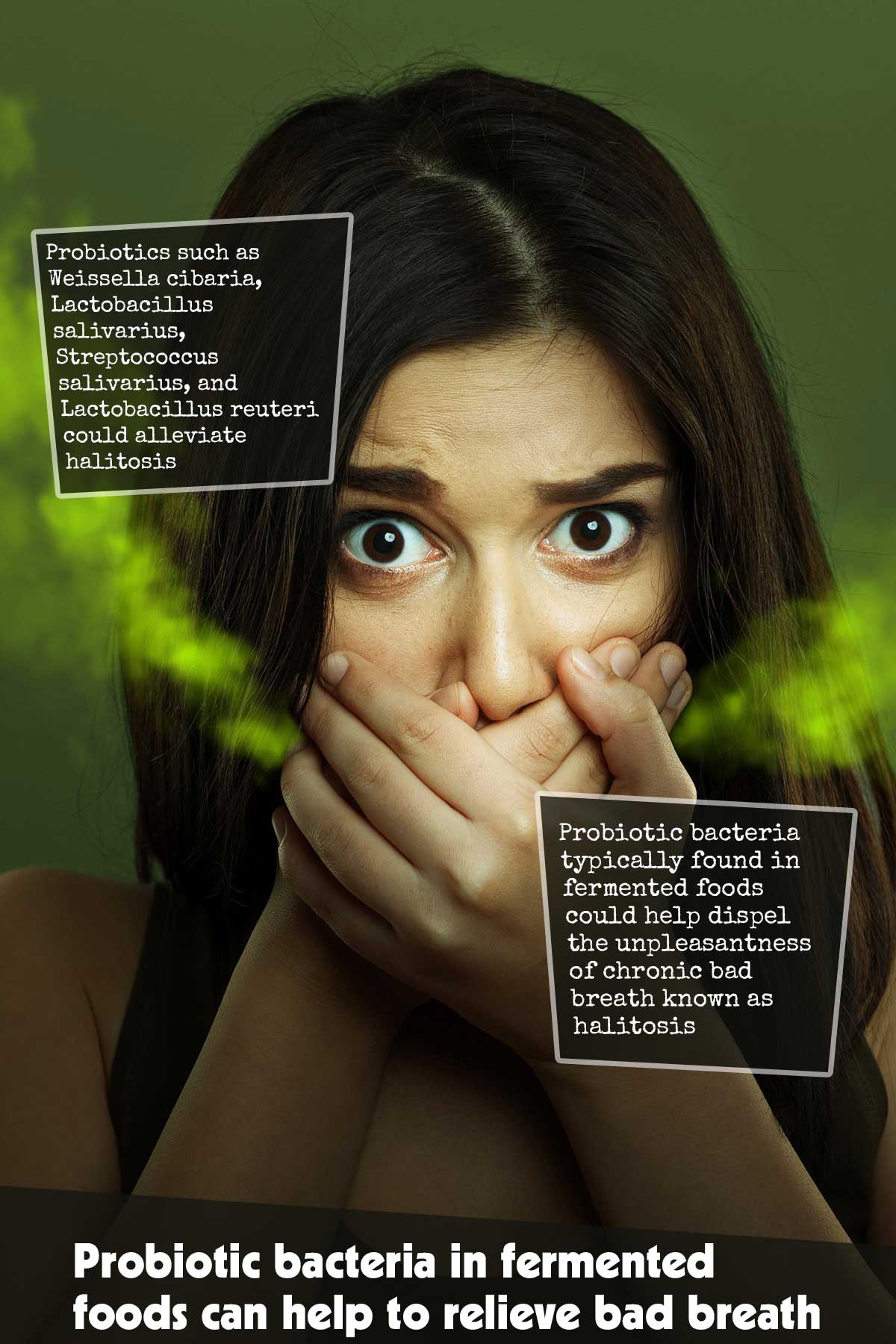An analysis of existing studies has revealed that probiotic bacteria typically found in fermented foods, which include miso soup, sourdough bread, and yogurt could help dispel the unpleasantness of chronic bad breath known as halitosis.1✅ JOURNAL REFERENCE
DOI: 10.1136/bmjopen-2022-060753
Although additional better quality research is required, the researchers say that Weissella cibaria, Streptococcus salivarius, Lactobacillus reuteri, and Lactobacillus salivarius, consumed as supplements in this study, could help to keep an individual’s breath fresh.
The primary reason for chronic bad breath is volatile sulphuric compounds that are produced by mouth bacteria due to food debris linked to poor dental and gum hygiene.
Options used for dealing with the problem include tongue scraping, teeth scaling, chewing gum, and mouthwash. Growing evidence indicates that probiotic bacteria could provide a simpler alternative.
To investigate this further, and determine how long any the effects lasted, databases were searched for relevant randomized studies.
From a preliminary batch of 238 studies, incomplete data and duplication reduced the number of suitable studies for data analysis to 7, which involved a total of 278 individuals.
The number of individuals in each study ranged from 23 to 68, ranging from between 19 and 70 in age. Periods of monitoring were between 2 and 12 weeks.
The severity of bad breath was determined by volatile sulphuric compound levels detected in the mouth known as the OLP score which measures the odor of breath at different distances from the mouth.
Included in the analysis were plaque indexes from 3 studies and tongue coating scores also from 3 studies as tartar build-up between the teeth and a dirty tongue are often considered to be significant causes of bad breath.
The data analysis revealed that OLP scores reduced significantly in individuals given probiotics in comparison to individuals not taking probiotics, regardless of the monitoring period length.
A similar result was seen for volatile sulphuric compound levels detected, although these varied considerably in the individual studies, and the effects observed were comparatively short-lived up to 4 weeks, after which there wasn’t any apparent difference.
There were however no significant plaque index or tongue coating score differences between individuals given probiotics and individuals who weren’t.
The researchers explained that probiotics could inhibit the proteins and amino acid decomposition by the mouth’s anaerobic bacteria, consequently curbing the smelly by-product production.
This systematic review suggests that probiotics such as Weissella cibaria, Lactobacillus salivarius, Streptococcus salivarius, and Lactobacillus reuteri could alleviate halitosis in the short term by reducing the concentration levels of volatile sulphuric compounds, but there’s no significant effect on the main causes of halitosis, which include tongue coating and plaque.




